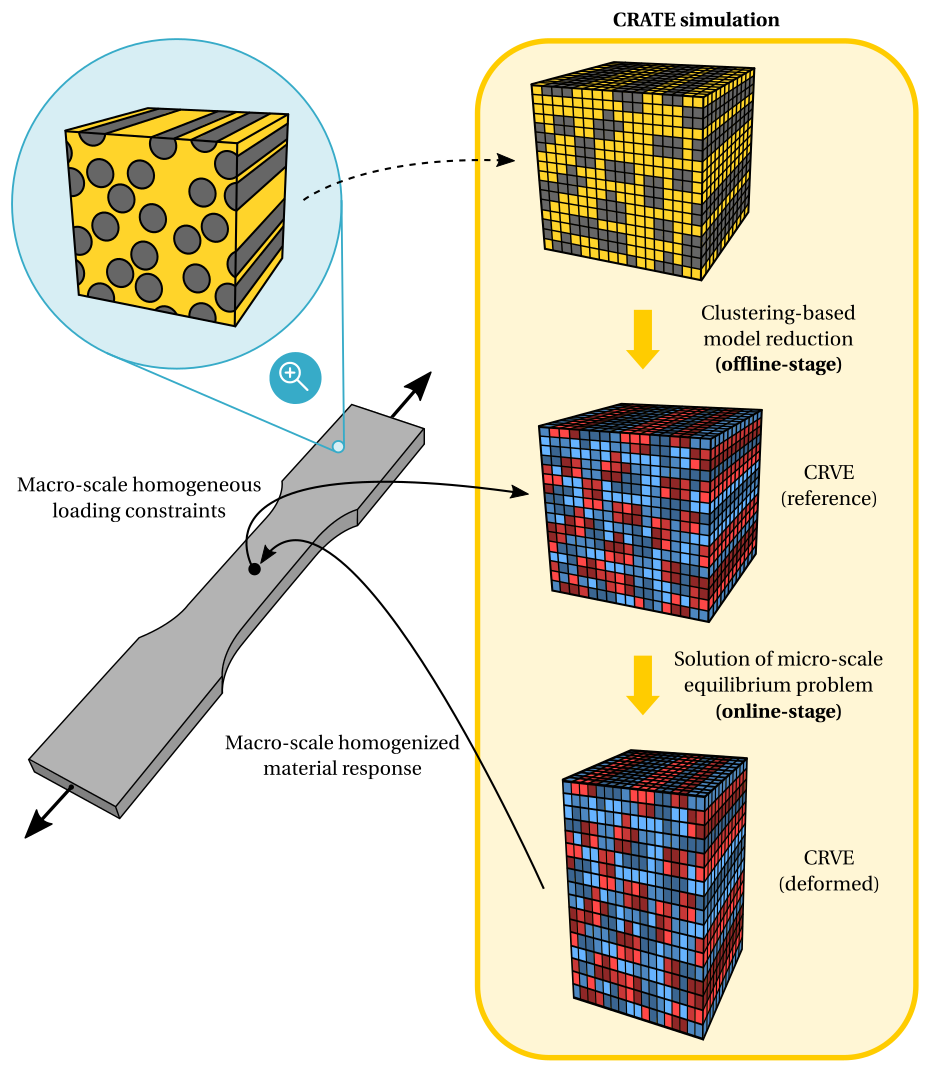CRATE (Clustering-based Nonlinear Analysis of Materials) is a Python program developed in the context of computational mechanics to aid the design and development of new materials. Its main purpose is performing multi-scale nonlinear analyses of heterogeneous materials through a suitable coupling between first-order computational homogenization and clustering-based reduced-order modeling: given a representative volume element of the material microstructure and the corresponding material phase properties, CRATE computes the material's effective mechanical response when subject to a prescribed macro-scale loading path.
CRATE was originally developed by Bernardo P. Ferreira1 in the context of his PhD Thesis2.
If you use CRATE in a scientific publication, it is appreciated that you cite this PhD Thesis:
@phdthesis{ferreira:2022a,
title = {Towards Data-driven Multi-scale Optimization of Thermoplastic Blends: Microstructural Generation, Constitutive Development and Clustering-based Reduced-Order Modeling},
author = {Ferreira, B.P.},
year = {2022},
langid = {english},
school = {University of Porto},
url={https://hdl.handle.net/10216/146900}
}
1 Profile: LinkedIN, ORCID, ResearchGate
2 Ferreira, B.P. (2022). Towards Data-driven Multi-scale Optimization of Thermoplastic Blends: Microstructural Generation, Constitutive Development and Clustering-based Reduced-Order Modeling. PhD Thesis, University of Porto (see here)
You can find everything you need to know in CRATE documentation!
If you find any issues, bugs or problems with CRATE, please use the GitHub issue tracker to report them. Provide a clear description of the problem, as well as a complete report on the underlying details, so that it can be easily reproduced and (hopefully) fixed!
You are also welcome to post there any questions, comments or suggestions for improvement in the GitHub discussions space!
Note:
Bear in mind that CRATE is a program developed in an academic environment and that I'm currently the only developer as a side project. This means that I'll do my best to address all the issues, questions and suggestions, but do expect a reasonable time frame! ~ Bernardo P. Ferreira
- Bernardo P. Ferreira is deeply thankful to Francisco Pires and Miguel Bessa for supervising the PhD Thesis that motivated the development of CRATE.
Copyright 2020, Bernardo Ferreira
All rights reserved.
CRATE is a free and open-source software published under a BSD 3-Clause License.

